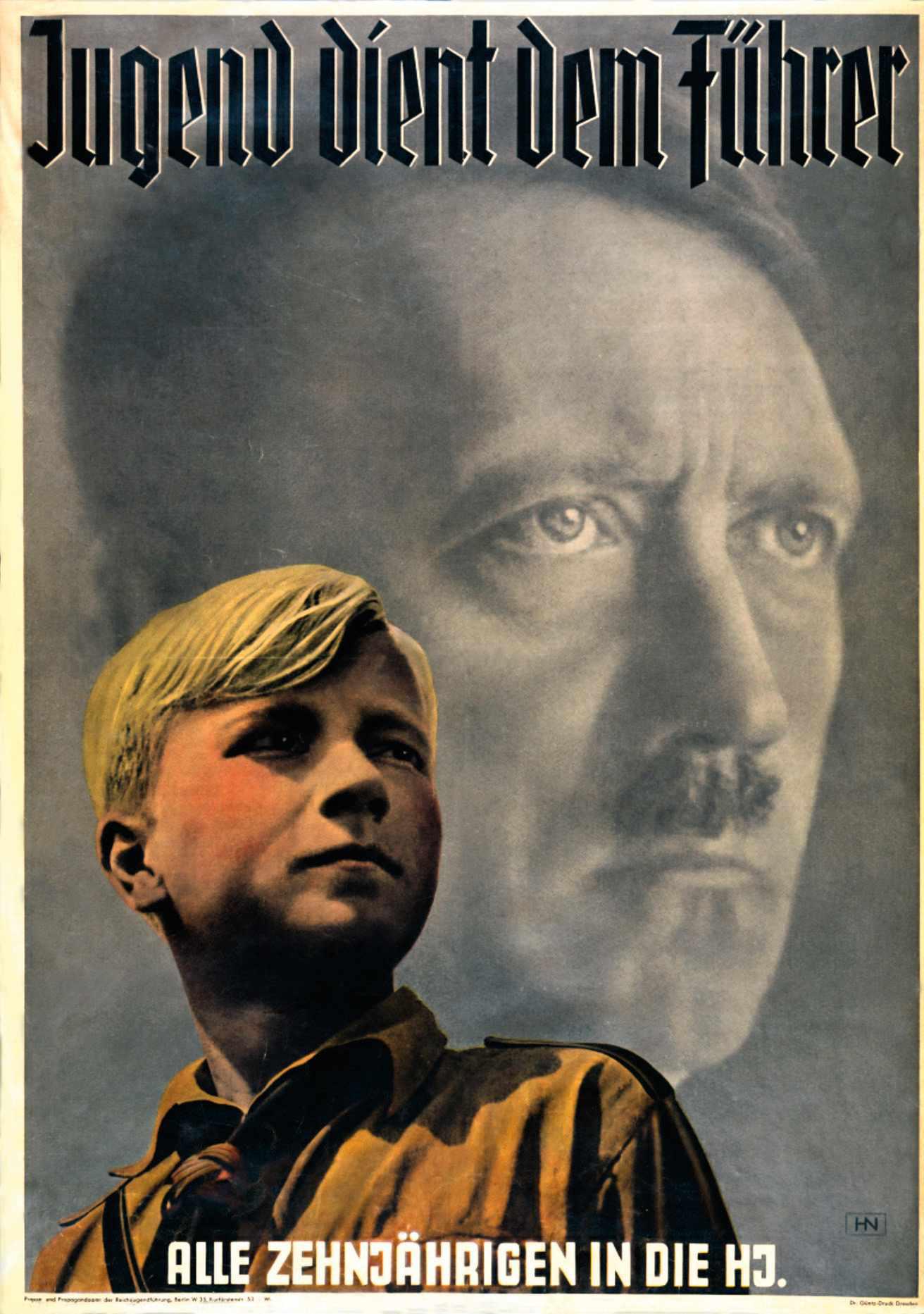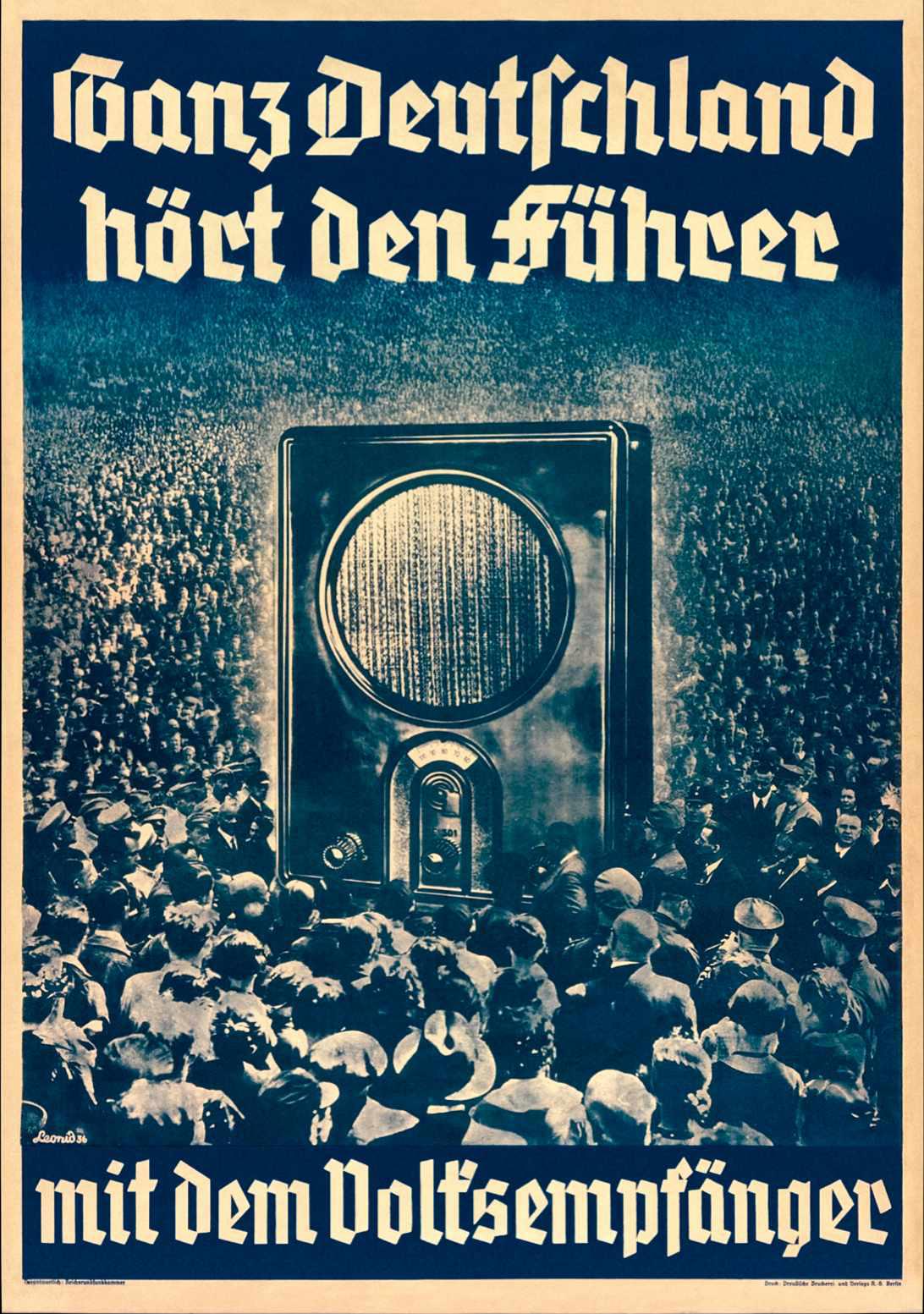試す 金 - 無料
The Nazis' war of words
BBC History UK
|December 2025
Hitler and his acolyte Joseph Goebbels wielded propaganda as a potent weapon in the battle for German hearts and minds. Lisa Pine shows how posters targeted all sectors of society to promote prejudice and bolster support for party policies
-

FAMILY PLANNING
 The Nazis considered nuclear families to be the building blocks of a 'pure' German nation
The Nazis considered nuclear families to be the building blocks of a 'pure' German nationThe family was exalted in Nazi ideology and propaganda as “the germ cell of the nation”. In the Nazi Party platform, a 25-point programme outlining their political goals, it was declared that: “The state must ensure that the nation’s health standards are raised by protecting mothers and infants.”
This 1936 poster shows the Nazi eagle spreading its wings protectively over the valuable German family. Echoing the eagle, the father of the family has his arms around his wife and one of his children; the mother holds a baby in her arms, while a third young child smiles out at the viewer. “The NSDAP protects the national community” is the headline slogan, with further wording proclaiming that “national comrades” could turn to their local NSDAP group for help or advice.
The Nazi Party did indeed provide assistance and counsel to families – provided that they were deemed ‘pure’ German, hereditarily healthy, and of good blood and character.
 OWNING THE AIRWAVES
OWNING THE AIRWAVESEncouraging universal uptake of radios, the Nazis hijacked broadcast media for propaganda purposes
Radio offered a convenient way of streaming propaganda and speeches directly into homes – so, unsurprisingly, the Nazis were keen to ensure that as many Germans as possible had their own radios. Hence the Volksempfänger ('People's Receiver'), a range of low-cost sets developed by the government from 1933.
このストーリーは、BBC History UK の December 2025 版からのものです。
Magzter GOLD を購読すると、厳選された何千ものプレミアム記事や、10,000 以上の雑誌や新聞にアクセスできます。
すでに購読者ですか? サインイン
BBC History UK からのその他のストーリー
BBC History UK
Royal progress
Alice Loxton's new book begins with a compelling premise.
1 mins
January 2026

BBC History UK
"Leaving Muslim contributions out of European history has allowed Islamophobic sentiment to flourish"
THARIK HUSSAIN speaks to Danny Bird about the long but often overlooked and distorted history of Muslims in Europe - and the enduring resistance to its reappraisal
9 mins
January 2026

BBC History UK
7 UNMISSABLE TRIPS IN 2026
With new routes, big anniversaries and fresh ways of discovering familiar favourites, TOM HALL highlights historical destinations to explore this year
4 mins
January 2026

BBC History UK
SOPHIE SCHOLL
Novelist Simon Scarrow chooses
2 mins
January 2026
BBC History UK
Portrait of the artists
TRACY BORMAN is enraptured by a beautifully written and richly illustrated exploration of early modern English art
2 mins
January 2026

BBC History UK
Humble heroes
Statues celebrate monarchs, rulers and conquerors - but who remembers the brave folk who gave their lives to save others? Anna Maria Barry recounts stories of selfsacrificing but otherwise ordinary people from the 19th and 20th centuries who are commemorated in one London park.
9 mins
January 2026

BBC History UK
BACK FROM THE DEAD
Britain’s War Office thanked the SAS for its remarkable efforts in WW2 by abolishing it – yet soon realised the error of its ways. Gavin Mortimer tells the story of how the elite unit reinvented itself to confront the challenges of the postwar world
8 mins
January 2026

BBC History UK
Q&A - A selection of historical conundrums answered by experts
Were Roman gladiators vegetarian?
8 mins
January 2026
BBC History UK
Martha McGill on a pioneering study of folk beliefs in early modern England
I was recently chatting with a handful of early modernists about the history book we'd take to a desert island.
1 min
January 2026

BBC History UK
Independent empires
Viewing the British empire through an American lens provides an intriguing alternative perspective on the 'Land of the Free', says DAVID ARMITAGE
4 mins
January 2026
Listen
Translate
Change font size
